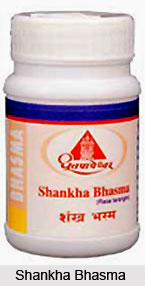 The term colic is generally applied to pain in the abdomen. It is usually present around the umbilicus or navel. It comes in spasms and is generally associated with constipation. Simple colic commonly arises from the presence of some indigestible matter in the alimentary canal. Colic pain is not accompanied by fever, which distinguishes it from colitis i.e. the inflammation of the intestine.
The term colic is generally applied to pain in the abdomen. It is usually present around the umbilicus or navel. It comes in spasms and is generally associated with constipation. Simple colic commonly arises from the presence of some indigestible matter in the alimentary canal. Colic pain is not accompanied by fever, which distinguishes it from colitis i.e. the inflammation of the intestine.
According to Ayurveda, colic in adults is either due to presence of wind in the stomach. Colic can also be called as the result of chronic constipation or a result of exposure to damp and cold. Infants who are being artificially fed are also prone to this condition.
Colic pain may also be due to appendicitis, gallstones or stones in the kidney, inflammation of the liver or the ovaries. In Ayurveda, it is known as Shula and is caused by the aggravation of vayu, one of the three dominant doshas. Colic pain may also travel to other parts of the body like the shoulder blades or the genital organs. It may also be accompanied by nausea and vomiting.
Medicines & Prescriptions: Immediate relief to the victim of colic can be provided by administration of two remedies. These two can be named as Shankha Bhasma or Hingvashtaka Churna. These are the drugs of choice in Ayurveda for colic pain. In severe cases, Maha Shankha Vati should be administered in doses of two tablets, four times a day. Another drug is Lahsunaadi Vati, which should be given in a dose of two tablets, four times a day. Abhraka Bhasma can also be given in doses of 150 mg, mixed with honey, four times a day.
After providing relief for the initial colic pain, the wise physician must cure the causes of the disease. Pain is usually an indication of a disease rather than a disease in itself. If the colic is due to appendicitis or presence of stones in the kidney or the bladder, steps should be taken to relieve those conditions. But if the pain is caused by the presence of vata, it should be taken to mean that chronic constipation or dyspepsia has caused it. In that case, steps should be taken to relieve constipation after the attack of colic has passed. A mild purgative should be given after which the patient should be advised to change his diet. In other words, he should take foods, which do not aggravate the constipation.
Diet and Other Regimen: Fried foods, carbohydrates, and starch should be restricted to the minimum. Boiled vegetables and fruits should be taken in larger quantities and fats should be avoided. Regular habits of eating and defecation are helpful. Morning walks or exercise are recommended.




















